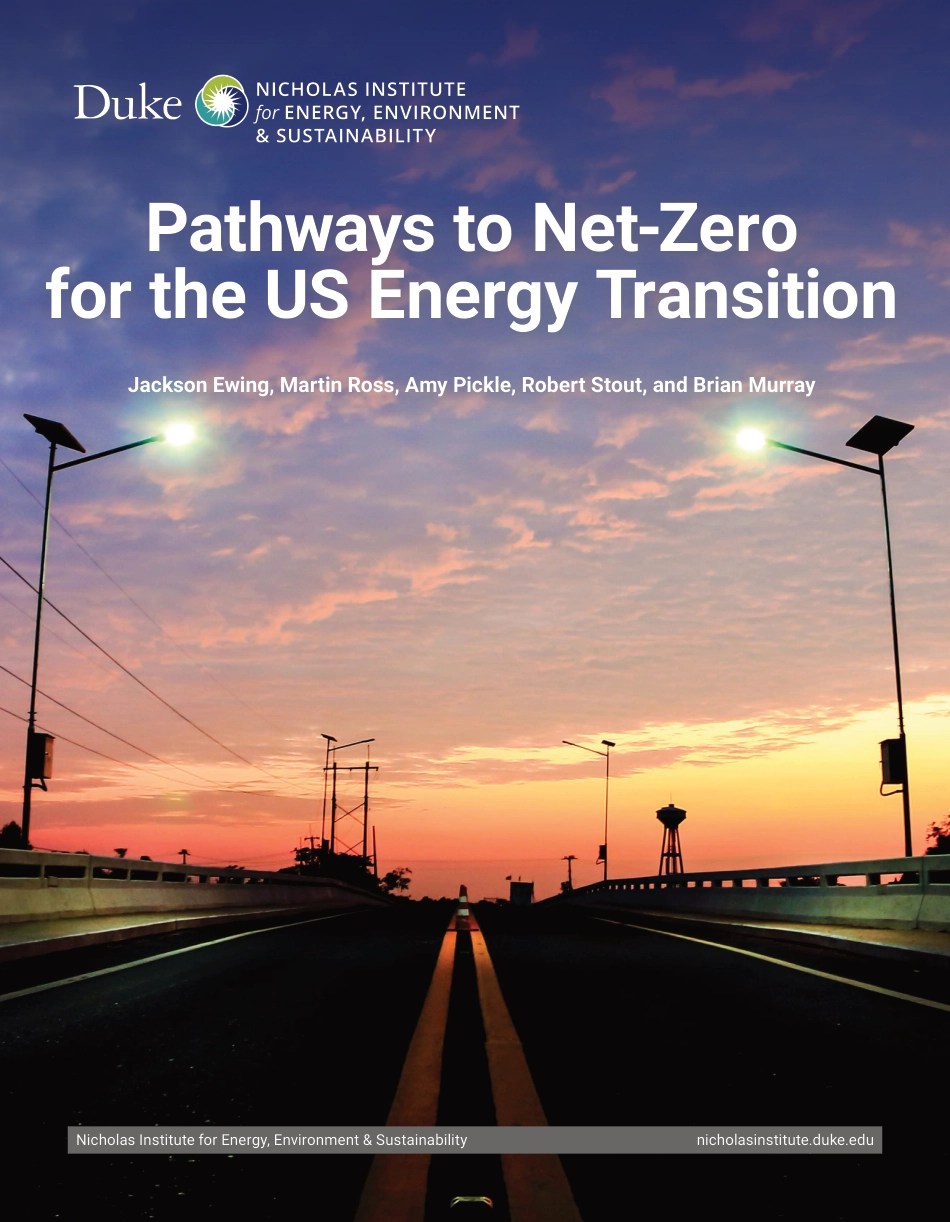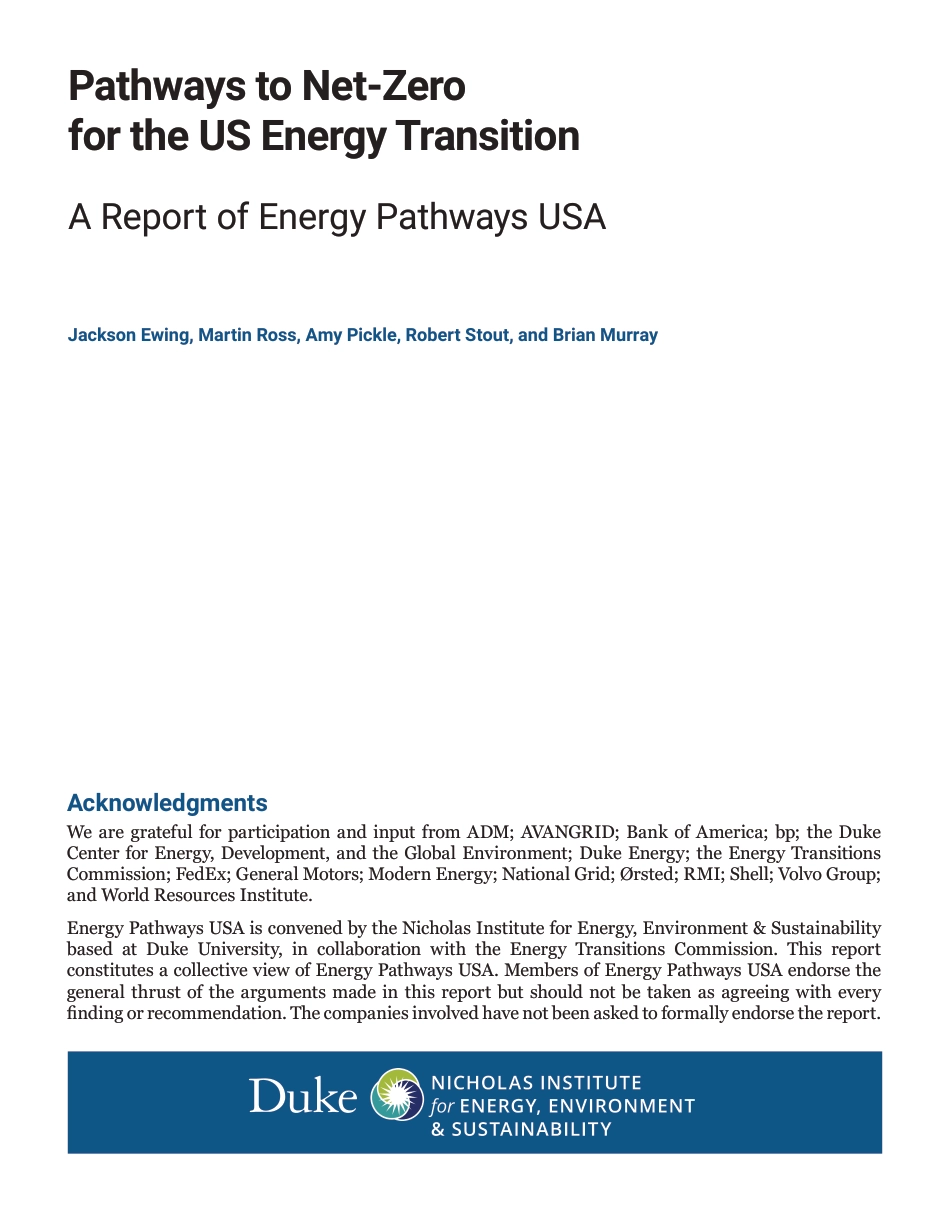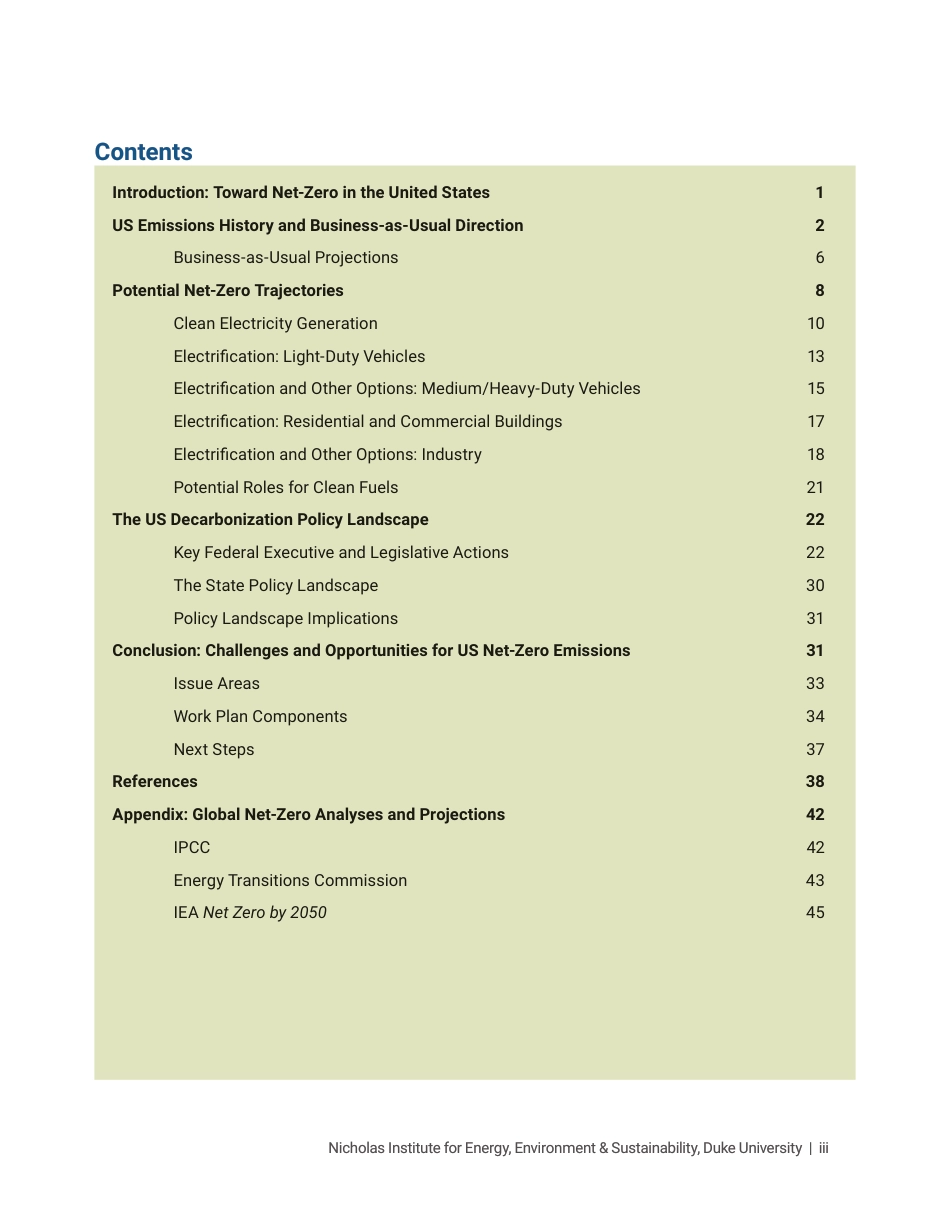Pathways to Net-Zero for the US Energy TransitionJackson Ewing, Martin Ross, Amy Pickle, Robert Stout, and Brian MurrayNicholas Institute for Energy, Environment & Sustainability nicholasinstitute.duke.eduAcknowledgments We are grateful for participation and input from ADM; AVANGRID; Bank of America; bp; the Duke Center for Energy, Development, and the Global Environment; Duke Energy; the Energy Transitions Commission; FedEx; General Motors; Modern Energy; National Grid; Ørsted; RMI; Shell; Volvo Group; and World Resources Institute. Energy Pathways USA is convened by the Nicholas Institute for Energy, Environment & Sustainability based at Duke University, in collaboration with the Energy Transitions Commission. This report constitutes a collective view of Energy Pathways USA. Members of Energy Pathways USA endorse the general thrust of the arguments made in this report but should not be taken as agreeing with every finding or recommendation. The companies involved have not been asked to formally endorse the report.Pathways to Net-Zero for the US Energy TransitionA Report of Energy Pathways USAJackson Ewing, Martin Ross, Amy Pickle, Robert Stout, and Brian MurrayNicholas Institute for Energy, Environment & Sustainability, Duke University | iiiIntroduction: Toward Net-Zero in the United States 1US Emissions History and Business-as-Usual Direction 2 Business-as-Usual Projections 6 Potential Net-Zero Trajectories 8 Clean Electricity Generation 10 Electrification: Light-Duty Vehicles 13 Electrification and Other Options: Medium/Heavy-Duty Vehicles 15 Electrification: Residential and Commercial Buildings 17 Electrification and Other Options: Industry 18 Potential Roles for Clean Fuels 21The US Decarbonization Policy Landscape 22 Key F...



